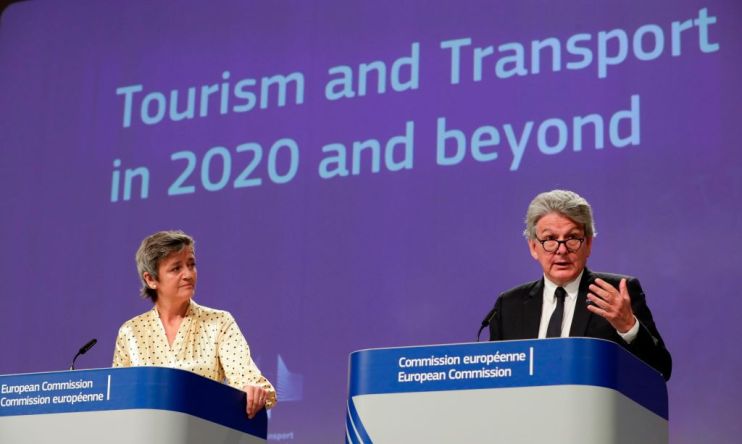EU unveils plans to reopen borders in bid to salvage tourism season

The EU has lain out new guidelines for member states to use to reopen their borders and encourage tourism as the bloc seeks to begin its recovery from the coronavirus pandemic.
It is hoped that the measures will salvage at least some of Europe’s summer holiday season, which brings in around €150bn in the average year.
Under the non-binding plan, which was drafted by the European Commission, states are encouraged to adopt a “co-ordinated approach” to lifting restrictions.
This means that countries should begin by opening its borders to other countries which are in similar epidemiological situations.
Countries have also been encouraged to ensure that tracing apps could be operated across borders in order to warn citizens in the event of an outbreak.
The bloc’s external borders will remain closed except for non-essential travel until mid-June at the earliest.
Due to the virus, the internal borders of 27-country Schengen zone has been closed for the first in its history.
Individual governments are already taking bilateral steps to reopen their own borders, with Germany today announcing that blanket controls with France, Austria and Switzerland would be relaxed from 15 May.
On the continent’s Baltic coast, meanwhile, Latvia, Lithuania and Estonia have agreed an internal travel “bubble” from the same date.
The announcement comes as the UK government said that it would implement a 14-day quarantine period for all incoming travellers.
Health secretary Matt Hancock also said that it was “unlikely” that international holidays would be possible this summer.
The government’s move prompted a strong backlash from the aviation industry, which said it was confused by an exemption for passengers coming from France.
Carriers such as Ryanair are now planning to begin operating a much enlarged service from July, with extensive measures to protect passengers.
The EU said it would not force airlines to leave the middle seat empty, a measure that many had dismissed as impraticable.
People will also be able to travel to and from Ireland without needing to quarantine.
The Foreign Office is currently advising against all but essential international travel.